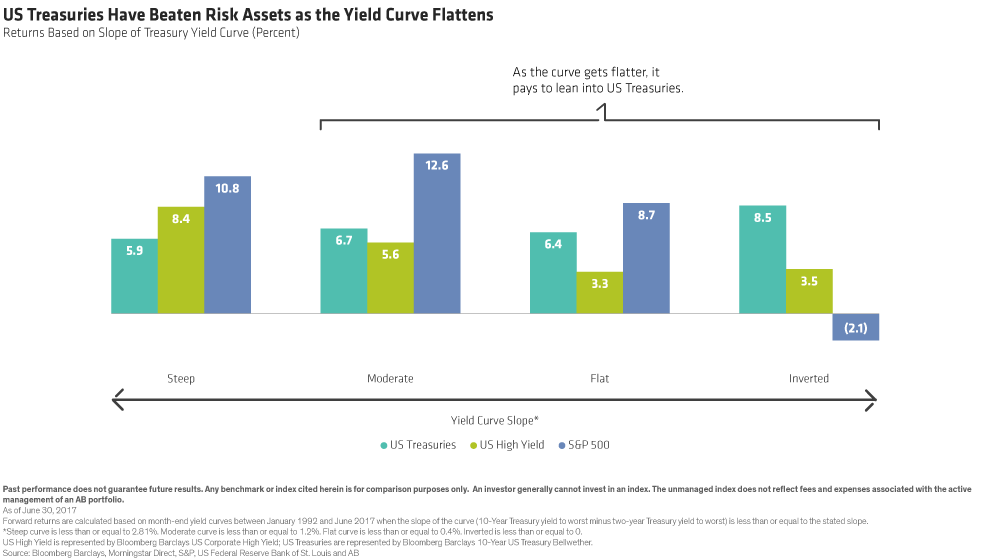Don’t Neglect Treasuries When Rates Are Rising - Context
by Fixed Income AllianceBernstein

When the Federal Reserve starts raising interest rates, the knee-jerk reaction for many investors is to reduce exposure to US Treasuries and load up on credit assets, which tend to be less sensitive to interest-rate changes.
But here’s something to keep in mind: rising rates eventually lead to slower growth. This causes long-term Treasury yields to fall faster than short-term yields rise, resulting in a flatter yield curve. In fact, during three of the past four Fed tightening cycles, the curve inverted, with the 10-year Treasury yield falling below the two-year yield.
Why does this matter? Because as the curve flattens, the credit cycle fizzles out and Treasuries start to beat assets like high-yield bonds and equities that are more dependent on economic growth.
This is why it’s risky to cut back too drastically on interest-rate-sensitive assets. Instead, investors should diversify their credit exposure by gradually tilting toward Treasuries as the Fed tightens and the curve flattens.
A credit barbell strategy that pairs US Treasuries and credit in a single portfolio, and adjusts the balance as conditions and valuations change, can be an effective way to do that. Such a strategy also positions your portfolio to tilt back toward credit risk as conditions change and valuations become more attractive.
The views expressed herein do not constitute research, investment advice or trade recommendations and do not necessarily represent the views of all AB portfolio-management teams.
Copyright © AllianceBernstein





.png)









